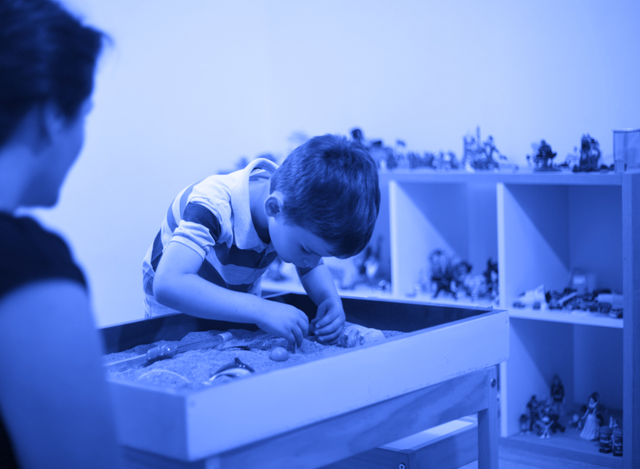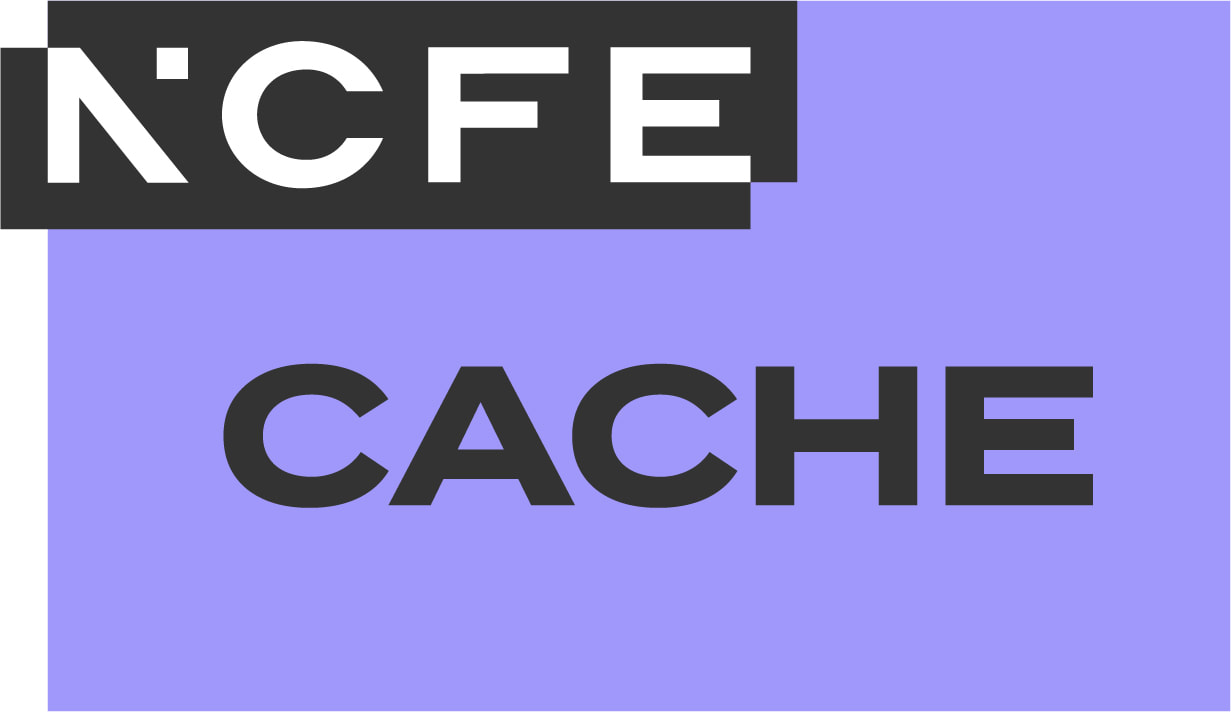- Play Work and Playful Pedagogies
- >
- Level 3 Diploma in Therapeutic Play Techniques - (NCFE CACHE Accredited)
Level 3 Diploma in Therapeutic Play Techniques - (NCFE CACHE Accredited)
SKU:
£880.00
73.34
880
£73.34 - £880.00
Unavailable
per item
NCCE are delighted to launch the NCFE CACHE Accredited Level 3 Diploma in Therapeutic Play Techniques.
This Diploma is designed for practitioners who work in a range of settings with children or young people, including residential care, schools, and early years settings. Through a range of knowledge and practical units, you will develop skills and understanding to work with children and young people with a variety of intervention techniques to complement your practice and support the mental wellbeing of the children and young people.
You will have the opportunity to learn and develop skills in Lego Play, Sand Play, Sensory Play, Story Play, Emotion Coaching, and Mindfulness Techniques and be able to demonstrate use of these in practical contexts.
Syllabus:
Unit 1: The Importance of Play
Within this unit, you will show an understanding the importance of play on children and young people’s cognitive, physical, and social development, and the impact of play on children's emotional development and mental well-being. You will explore theoretical understandings of play and development in additional to mental and well-being challenges that children and young people face.
Unit 2: Emotional and Social Development in Children and Young People
First, you will consider the life stages of children and young people and the impact of varied experiences on the children and young people's emotional and social development. You will also show how you can promote social development through a range of playful activities.
Unit 3: Neuroscience and Brain Development in Children
This unit will allow you to explore the development of the brain and neurological concepts and language. You will also consider adverse experiences and how these impact healthy brain development.
Unit 4: Working in the Therapeutic Setting
In this unit, you will understand a range of therapy-based techniques and how these can support children in practice. You will explore Play Therapy, Filial Therapy, Dialectical Behavioural Therapy, and Cognitive Behavioural Therapy. This unit also allows you to gain an understanding of the ethical guidelines when working in a therapeutic role.
Unit 5: Therapeutic Play in the none-therapeutic Setting
With your understanding of therapeutic approaches, it is now time to learn how to transfer these skills into your own setting- such as a school, early years setting, or other setting working with children and young people.
Unit 6: Emotion Coaching with Children and Young People
In this unit, you will learn the concepts of Emotion Coaching. You will be able to demonstrate application of Emotion Coaching with children or young people and be able to evaluate your own practice.
Unit 7: Brick Play Interventions
This unit allows you to explore the core concepts and background of Lego Therapy. Additionally, you will learn how to run a Brick Play therapy intervention scheme with a group of children or young people.
Unit 8: Storytelling Techniques with Children and Young People
It is time to let your imagination flow! In this unit, you will gain an understanding of story-telling techniques as an aid to support emotional development and demonstrate and evaluate your practice in story-telling.
Unit 9: Sand Tray Play and Sensory Play
Learn the key concepts of sand tray therapy and how to embed this as a playful technique to support children's social, emotional, and mental well-being. You will also be able to use sand tray play in practice and develop your skills with other sensory play resources.
Unit 10: Mindfulness and Journaling Techniques with Children and Young People
This unit will allow you to explore both journaling and mindfulness techniques that can be used with children or young people. You will be able to implement these in your own setting and evaluate your own practice.
Placement Requirements:
Learners undertaking this qualification will be required to gain real work experience to carry out the tasks. This can be with children and young people of any age, and in any setting, employed or voluntary.
Our qualification has been developed to meet the specific needs of our learners and has been accredited by NCFE demonstrating the quality and rigour.
NCFE is an awarding organisation recognised by the qualification regulators for England (Ofqual), Wales (Qualifications Wales) and Northern Ireland (CCEA Regulation). This is an unregulated qualification and is not a nationally recognised qualification. This qualification has been accredited as a Customised Qualification and we have benchmarked the qualification’s learning outcomes and assessment criteria at Level (using a national framework’s level descriptors) to allow you to demonstrate the difficulty and depth of study. On completion of the Customised Qualification, learners will receive a certificate of achievement. The certificate is evidence of the knowledge and skills gained by completing the qualification. This qualification has been accredited by NCFE under the Customised Qualification and the certificate of achievement will be issued directly by NCFE.
This Diploma is designed for practitioners who work in a range of settings with children or young people, including residential care, schools, and early years settings. Through a range of knowledge and practical units, you will develop skills and understanding to work with children and young people with a variety of intervention techniques to complement your practice and support the mental wellbeing of the children and young people.
You will have the opportunity to learn and develop skills in Lego Play, Sand Play, Sensory Play, Story Play, Emotion Coaching, and Mindfulness Techniques and be able to demonstrate use of these in practical contexts.
Syllabus:
Unit 1: The Importance of Play
Within this unit, you will show an understanding the importance of play on children and young people’s cognitive, physical, and social development, and the impact of play on children's emotional development and mental well-being. You will explore theoretical understandings of play and development in additional to mental and well-being challenges that children and young people face.
Unit 2: Emotional and Social Development in Children and Young People
First, you will consider the life stages of children and young people and the impact of varied experiences on the children and young people's emotional and social development. You will also show how you can promote social development through a range of playful activities.
Unit 3: Neuroscience and Brain Development in Children
This unit will allow you to explore the development of the brain and neurological concepts and language. You will also consider adverse experiences and how these impact healthy brain development.
Unit 4: Working in the Therapeutic Setting
In this unit, you will understand a range of therapy-based techniques and how these can support children in practice. You will explore Play Therapy, Filial Therapy, Dialectical Behavioural Therapy, and Cognitive Behavioural Therapy. This unit also allows you to gain an understanding of the ethical guidelines when working in a therapeutic role.
Unit 5: Therapeutic Play in the none-therapeutic Setting
With your understanding of therapeutic approaches, it is now time to learn how to transfer these skills into your own setting- such as a school, early years setting, or other setting working with children and young people.
Unit 6: Emotion Coaching with Children and Young People
In this unit, you will learn the concepts of Emotion Coaching. You will be able to demonstrate application of Emotion Coaching with children or young people and be able to evaluate your own practice.
Unit 7: Brick Play Interventions
This unit allows you to explore the core concepts and background of Lego Therapy. Additionally, you will learn how to run a Brick Play therapy intervention scheme with a group of children or young people.
Unit 8: Storytelling Techniques with Children and Young People
It is time to let your imagination flow! In this unit, you will gain an understanding of story-telling techniques as an aid to support emotional development and demonstrate and evaluate your practice in story-telling.
Unit 9: Sand Tray Play and Sensory Play
Learn the key concepts of sand tray therapy and how to embed this as a playful technique to support children's social, emotional, and mental well-being. You will also be able to use sand tray play in practice and develop your skills with other sensory play resources.
Unit 10: Mindfulness and Journaling Techniques with Children and Young People
This unit will allow you to explore both journaling and mindfulness techniques that can be used with children or young people. You will be able to implement these in your own setting and evaluate your own practice.
Placement Requirements:
Learners undertaking this qualification will be required to gain real work experience to carry out the tasks. This can be with children and young people of any age, and in any setting, employed or voluntary.
Our qualification has been developed to meet the specific needs of our learners and has been accredited by NCFE demonstrating the quality and rigour.
NCFE is an awarding organisation recognised by the qualification regulators for England (Ofqual), Wales (Qualifications Wales) and Northern Ireland (CCEA Regulation). This is an unregulated qualification and is not a nationally recognised qualification. This qualification has been accredited as a Customised Qualification and we have benchmarked the qualification’s learning outcomes and assessment criteria at Level (using a national framework’s level descriptors) to allow you to demonstrate the difficulty and depth of study. On completion of the Customised Qualification, learners will receive a certificate of achievement. The certificate is evidence of the knowledge and skills gained by completing the qualification. This qualification has been accredited by NCFE under the Customised Qualification and the certificate of achievement will be issued directly by NCFE.







